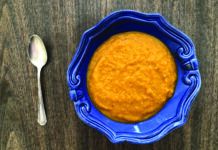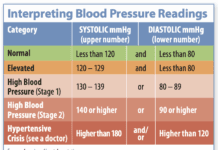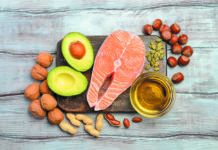Home Search
Cancer - search results
If you're not happy with the results, please do another search
Q. Can you tell me if instant coffee confers the same health benefits as...
Q. Can you tell me if instant coffee confers the same health benefits as brewed coffee?
Alpha- and Beta-Carotene Linked to Lower Breast Cancer Risk
A dietary pattern high in vegetables and fruits such as carrots, pumpkin, sweet potatoes, peppers, cantaloupe and dark leafy greens might help protect you against breast cancer. According to a new analysis of data from the European Prospective Investigation into Cancer and Nutrition study, women with higher blood levels of alpha- and beta-carotene were significantly less likely to have breast cancer.
Q. Does kombucha tea really have any health benefits, as I keep hearing about?
Q. Does kombucha tea really have any health benefits, as I keep hearing about?
Q. How do the nutrition and probiotic benefits of kefir compare with those of...
Q. How do the nutrition and probiotic benefits of kefir compare with those of Greek yogurt?
New Reasons to Skip Sugary Drinks
Two new studies add to the evidence that led the latest Dietary Guidelines for Americans to recommend restricting intake of added sugars, nearly half of which in US diets come from sugar-sweetened beverages.
2015 Dietary Guidelines for Americans: The Good, the Bad and the Ugly
[IMGCAP(1)] Earlier this year, the federal government released the new Dietary Guidelines for Americans (DGAs). (See our March Special Report.) As a cardiologist, public-health advocate and nutrition scientist, I see a lot of good in the DGAs. First, the DGAs emphasize healthful eating patterns and foods. This is an advance over past guidelines, which focused more on isolated nutrient targets. Modern nutrition science tells us that, for preventing major diseases like obesity, diabetes, heart disease and cancers, its…
How Much Should You Worry About Meat and Cancer?
Is the slice of bacon on your BLT really as dangerous as smoking a cigarette? That was the implication of some of the scary headlines about the World Health Organization's recent report stating that processed meat raises the risk of colon, stomach and other cancers.
Longevity Benefits Seen with Moderate Coffee Drinking
That extra cup of coffee is not only safe for most people, but might actually reduce your risk of dying prematurely from heart disease and several other causes.
Do You Really Need to “Detox”?
While theres something to be said for clean eating, the "detox" fad needs a reality check. "First, your body already has a highly effective system for removing toxins, principally the liver and kidneys," explains Irwin H. Rosenberg, MD, University Professor of Medicine and Nutrition at Tufts. "Second, diets and products that claim to detox the body do not identify what supposed toxins are being targeted."
Mediterranean Diet Linked to Lower Breast-Cancer Risk
Hardly a day goes by without headlines touting the health benefits of a Mediterranean-style diet, which has been linked to lower risk of cardiovascular disease and possible brain protection. Now, a recent study suggests this style of eating may also help protect women against breast cancer.




























